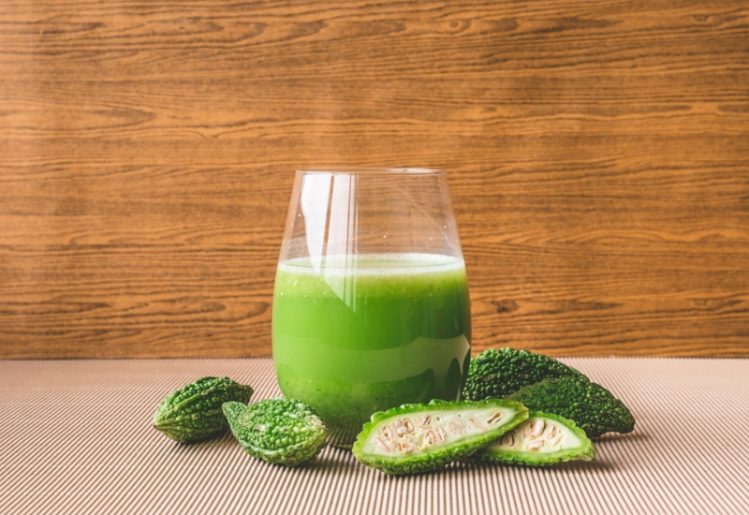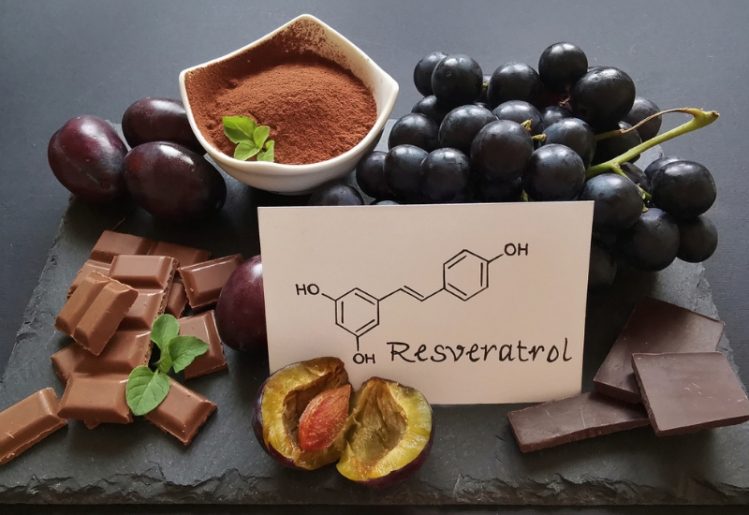Every May is designated Mental Health Month as a means of raising awareness about the importance of taking care of your emotional and psychological health. The link between COVID-19 and depression is becoming more apparent, making it essential to learn how to lower your risks for depressive episodes naturally.
How are COVID-19 and Depression Linked?
 Depression is always a timely issue to address, particularly because many people do not pay as much attention to their mental well-being as they should. In fact, one person out of every five will suffer from some type of mental illness in his or her lifetime, including depression, anxiety or bi-polar disorder.
Depression is always a timely issue to address, particularly because many people do not pay as much attention to their mental well-being as they should. In fact, one person out of every five will suffer from some type of mental illness in his or her lifetime, including depression, anxiety or bi-polar disorder.
The risk of depression is especially great as governments are extending lock-downs, economies are suffering and the pandemic continues to spread. All of these factors contribute to the stress that affects our mental health and, for those with a greater risk of experiencing depressive episodes, that stress can be very harmful.
The increased stress can also make people more susceptible to contracting this disease and other illnesses that can put their health at risk. We know that stress hormones compromise the functioning of the immune system, so it’s not surprising that people at a higher risk for depression also face a higher risk of contracting COVID-19.
Additionally, some people who have already been diagnosed with depression may rely on access to resources outside the home. Regular sessions with a therapist, group counseling or daily physical activity are just some of the activities that help people manage their depression. The shelter-in-place response to COVID-19 has made it impossible for many people to access these resources, leaving them to suffer more frequent, or more severe, depressive episodes.
What is Depression?
Depression is more than just a feeling of sadness, although that is one symptom of this common mood disorder. Depression also results in a loss of interest in doing activities that you normally enjoy, so even though you may not be feeling sad, you may still be suffering from a depressive episode. The condition can be brought on by a traumatic life event, such as the death of a loved one or the loss of a job, but you may not be diagnosed with depression unless the symptoms persist for an extended period of time.
The Symptoms and Signs of Depression
- sadness
- loss of interest in activities or hobbies
- loss of appetite and/or sexual desire
- unexplained weight changes
- change in sleeping habits
- inhibited cognitive abilities, such as a loss of concentration
- fatigue
- feelings of inadequacy
- thoughts about death, or attempts at suicide
Causes of Depression
Due to the link between COVID-19 and depression, it’s important to know when a loved one might be suffering from depression. While they may not have been diagnosed with the condition, you can determine a greater risk for the disorder by reviewing the factors that increase the likelihood of developing the condition. Currently, this is the best we can do until the underlying cause can be discovered. These factors include:
- Heredity: A history of depression in the family.
- Conflict or Tragedy: Life events, such as an ongoing dispute or a death in the family.
- Addiction: Substance abuse can either cause, or worsen, depressive episodes.
- Underlying Medical Conditions: Sleep disorders, chronic pain or cognitive disorders can lead to depression.
- Medication: Depression may be a side effect of some prescription drugs.
How Can You Alleviate Depression Naturally?
Add More Natural Herbs to Your Diet
Certain herbs that are found in nature have medicinal properties, and have been found to reduce the frequency or severity of depressive episodes. For instance, research has proven that St. John’s Wort helps boost mood by causing a greater production of serotonin, which is a “feel good” neurotransmitter in the brain.
Omega-3 fatty acids also help alleviate the symptoms of depression because they contain the two compounds (DHA and EPA) that a person with depression is often lacking. Other natural compounds to add to your diet include saffron, SAM-e (S-adenosylmethionine), and folate.
Take a Daily Supplement
Another possibility is to take a daily vitamin or supplement that’s engineered to support optimum mental health. Many of these types of supplements contain 5-HTP and tryptophan. These compounds are important, because they’re precursors to serotonin, and can promote the production of more of this important neurotransmitter. Certain studies have found that taking a supplement containing quick-release 5-HTP and timed-release tryptophan could help support a healthy mood.
Get More Exercise
 Raising the levels of serotonin in the brain is essential for alleviating the symptoms of depression, and getting more exercise is one of the best ways of doing that. As you work out, your brain will produce those good feelings that your brain relies upon to regulate mood. While 30 minutes of exercise per day is recommended, more physical activity will help the brain release more serotonin.
Raising the levels of serotonin in the brain is essential for alleviating the symptoms of depression, and getting more exercise is one of the best ways of doing that. As you work out, your brain will produce those good feelings that your brain relies upon to regulate mood. While 30 minutes of exercise per day is recommended, more physical activity will help the brain release more serotonin.
Ditch the Caffeine
When talking about addiction, people often overlook their caffeine habit. Unfortunately, caffeine can interfere with your brain’s ability to naturally regulate your mood, while also affecting sleep patterns. If you can’t eliminate caffeine from your routine, limit its consumption to the early morning hours.
Overall, living a healthier lifestyle and cutting out things like sugar, tobacco and alcohol, will help you feel better. This can go a long way towards helping your brain regulate your mood naturally. If you have made these changes in your life and you’re still experiencing depressive episodes, you should contact a mental health professional immediately.
 Originating in South India, bitter melon was first imported by China in the 1300s and, as it gained popularity, was highly exported to Africa and parts of the Caribbean. The food is particularly bitter, which is how it gets its name, and for that reason has become a staple food in Asian cuisine.
Originating in South India, bitter melon was first imported by China in the 1300s and, as it gained popularity, was highly exported to Africa and parts of the Caribbean. The food is particularly bitter, which is how it gets its name, and for that reason has become a staple food in Asian cuisine. Finally, bitter melon can
Finally, bitter melon can  Many people tend to ignore their mental health until they develop a noticeable problem that begins to affect their daily lives. Today, more than 10 million adults in the U.S. suffer from depression or some other type of mental illness. Acknowledging that many of these conditions are preventable, mental health professionals have collaborated on creating a month devoted to the proper care of the mind.
Many people tend to ignore their mental health until they develop a noticeable problem that begins to affect their daily lives. Today, more than 10 million adults in the U.S. suffer from depression or some other type of mental illness. Acknowledging that many of these conditions are preventable, mental health professionals have collaborated on creating a month devoted to the proper care of the mind. Even though you’re abiding by the rules of a lock-down, you should still step outside for 30 minutes to an hour each day. Staying locked up in your home will compel you to breathe in the same stale air, which will contain more carbon dioxide as you exhale each breath. Studies have proven that getting outside and breathing fresh air improves mood, cognitive abilities and reduces the risks of depressive episodes. You don’t have to do anything. Just go outside and sit on your porch, or rest under a tree.
Even though you’re abiding by the rules of a lock-down, you should still step outside for 30 minutes to an hour each day. Staying locked up in your home will compel you to breathe in the same stale air, which will contain more carbon dioxide as you exhale each breath. Studies have proven that getting outside and breathing fresh air improves mood, cognitive abilities and reduces the risks of depressive episodes. You don’t have to do anything. Just go outside and sit on your porch, or rest under a tree. Aside from the protective role it plays in grape plants, resveratrol contains antioxidants that are also extremely beneficial to human health. The high content of resveratrol in red wine delivers powerful antioxidants into the blood supply, which help to protect against free radicals in the body.
Aside from the protective role it plays in grape plants, resveratrol contains antioxidants that are also extremely beneficial to human health. The high content of resveratrol in red wine delivers powerful antioxidants into the blood supply, which help to protect against free radicals in the body. As we get older, we become more susceptible to conditions that can affect our ability to see well. Partial or complete vision loss can result from glaucoma, diabetic retinopathy, cataracts or macular degeneration. Since the antioxidants in red wine help to protect against oxidative stress, the inflammation that increases the risks of developing these conditions is also reduced. While it’s necessary to take other steps to protect your vision, moderate red wine consumption can also help.
As we get older, we become more susceptible to conditions that can affect our ability to see well. Partial or complete vision loss can result from glaucoma, diabetic retinopathy, cataracts or macular degeneration. Since the antioxidants in red wine help to protect against oxidative stress, the inflammation that increases the risks of developing these conditions is also reduced. While it’s necessary to take other steps to protect your vision, moderate red wine consumption can also help. Most people know that they’re more likely to get sick when they’re not well rested, but research into this area has uncovered
Most people know that they’re more likely to get sick when they’re not well rested, but research into this area has uncovered  Your environment is just as important as your bedding when it comes to creating a sleep-friendly atmosphere. If you notice excess lighting spilling into your bedroom from a window or from the corridor, it may be helpful to wear a sleep mask. Similarly, wearing earplugs, or noise-canceling earmuffs, to bed can keep noises from waking you in the night.
Your environment is just as important as your bedding when it comes to creating a sleep-friendly atmosphere. If you notice excess lighting spilling into your bedroom from a window or from the corridor, it may be helpful to wear a sleep mask. Similarly, wearing earplugs, or noise-canceling earmuffs, to bed can keep noises from waking you in the night. Reservatrol is found naturally in red grapes, red wine, peanuts, pistachios, blueberries, raspberries and dark chocolate. The compound is most highly concentrated in the skin of red grapes. This polyphenol antioxidant is an antimicrobial compound produced by plants to protect against environmental challenges such as harsh climate changes and too much dangerous ultraviolet light. In recent years, researchers have discovered promising ways that resveratrol may slow down the aging process, as it offers the body a multitude of protections.
Reservatrol is found naturally in red grapes, red wine, peanuts, pistachios, blueberries, raspberries and dark chocolate. The compound is most highly concentrated in the skin of red grapes. This polyphenol antioxidant is an antimicrobial compound produced by plants to protect against environmental challenges such as harsh climate changes and too much dangerous ultraviolet light. In recent years, researchers have discovered promising ways that resveratrol may slow down the aging process, as it offers the body a multitude of protections. With so many benefits spread across many facets of physical and mental health, resveratrol deserves a prominent spot in everyone’s daily diet. Because many Western diets do not naturally include this compound, you may have to be purposeful about consuming it; you can find a high-quality resveratrol supplement online or at your local health food store.
With so many benefits spread across many facets of physical and mental health, resveratrol deserves a prominent spot in everyone’s daily diet. Because many Western diets do not naturally include this compound, you may have to be purposeful about consuming it; you can find a high-quality resveratrol supplement online or at your local health food store.